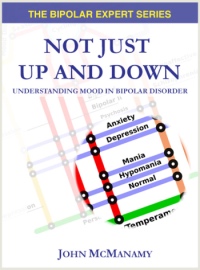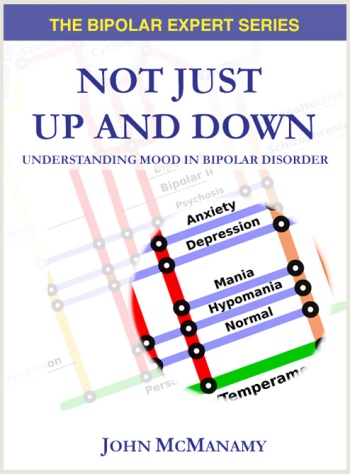Solving the Mood Riddle
 |
According to numerous studies, countries like Nigeria experience way less rates of mental illness and recover a lot faster. Huh?
|
Populations and mental illness. According to the World Bank, the average Nigerian earns $300 a year and has a life expectancy of 45.3 years. Nearly six percent of the young female population there has HIV, only 7.1 in a thousand has a computer, electricity and other services are luxuries, and the country is drowning in $31.1 billion of debt. Yet, apparently, the Nigerians are onto something. In 2003, a World Values Survey of more then 65 countries ranked Nigeria number one in terms of happiness.
That finding, apparently, was no fluke. In June 2004, a major World Health Organization survey of 14 countries found those impoverished but exuberant Nigerians putting the affluent but angst-ridden Americans and Europeans to shame with a 12-month prevalence of mood disorders of 0.8 percent, far less than any of the surveyed nations. The US had the dubious distinction of leading the pack at 9.6, while Shanghai clocked in at 1.7, Beijing 2.5, Japan 3.1 and the European nations ranged from 3.6 for Germany to 9.1 for the Ukraine.
My New Book!

Purchase now.
The WHO Survey was led by Ronald Kessler PhD of Harvard, who was the principal investigator of the ground-breaking US National Comorbidity Survey of 1991-1992 and its follow-ups, as well as the director of various other WHO population studies.
Nigeria was the only African nation surveyed. The two Latin American nations in the study and Lebanon had far more in common with the European nations than with either Nigeria or the Asian populations. Other survey findings documented Americans out in front by a wide margin in anxiety disorders (at 18.2 percent compared to the second place French at 12 percent) and number two in substance use (3.8 percent compared to 6.4 percent for the Ukrainians).
In all, 26.4 percent of Americans had a mental illness over the past 12 months - 7.7 in the serious category and 9.4 percent moderate - outpacing second place Ukraine by nearly six points.
The one-third serious mental illness to total mental illness ratio held steady across all nations. Other European totals ranged from 8.2 percent Italy to 18.4 percent France. Japan finished at 8.8 and Nigeria and Shanghai brought up the rear at 4.7 and 4.3, respectively.
Those with serious disorders reported that they were unable to carry out their usual activities for about 30 days owing to their illness. The predictable exception was Nigeria at 15.2 days. US residents spent 66.9 days under the covers and Italians kept the lights out for 206.4 days.
The survey did not offer any reasons for why Americans and Europeans are so depressingly ill, but earlier WHO studies provide food for thought.
More WHO
In 1969, WHO began tracking schizophrenia patients in nine countries. At the end of five years, those in three developing countries - India, Nigeria, and Columbia - had "considerably better course and outcome" than patients in the US and five other developed countries.
Fluke finding? Bad methodology? In 1978 WHO launched a second study tracking mainly first episode schizophrenia patients in ten countries. The results vindicated the first study. After two years, nearly two thirds of those in the developing countries had good outcomes vs those who were chronically ill. This was virtually the exact reverse of how the patients fared in the western world - 37 percent with good outcomes, 59 percent chronically ill.
According to the researchers: "Being in a developed country was a strong predictor of not attaining a complete remission." Follow-up interviews conducted in 1997 with the patients in these two studies found that 53 percent of those in the developing countries were "never psychotic" again, with 73 percent employed.
Could it be that those in the less developed world have the type of supportive families and communities that prove protective against the stresses of daily living? Or, flipping it around, would it be safe to say that modern society literally sets us up to fail? In a crazy world, where we are subjected to crazy demands with no wiggle room, it's only logical that our rates of mental illness will be higher and rates of recovery lower.
But there is also another big wet matzo ball on the table. As Robert Whitaker in his 2010"Anatomy of an Epidemic" reports:
Although the WHO investigators didn't identify a reason for the stark disparity in outcomes, they had tracked antipsychotic usage in the second study, having hypothesized that perhaps patients in the poor countries fared better because they more reliably took their medication. However, they found the opposite to be true. Only 16 percent of the patients in the poor countries were regularly maintained on antipsychotics, versus 61 percent of the patients in the rich countries.
Another Twist
An article by author Ethan Watters in the Jan 8 NY Times Magazine throws down the gauntlet:
For more than a generation now, we in the West have aggressively spread our modern knowledge of mental illness around the world. We have done this in the name of science, believing that our approaches reveal the biological basis of psychic suffering and dispel prescientific myths and harmful stigma. There is now good evidence to suggest that in the process of teaching the rest of the world to think like us, we've been exporting our Western "symptom repertoire" as well. ...
The article, "The Americanization of Mental Illness," is an adaptation from the 2010 book, ''Crazy Like Us: The Globalization of the American Psyche." In the article, Mr Watters uses the example of a "culturally specific" form of anorexia documented by one researcher in Hong Kong during the 80s and 90s. Unlike Americans with anorexia, those in Hong Kong simply complained of bloated stomachs without dieting or expressing fear of becoming fat. The illness was rare.
Then, in 1994, in the wake of the death of a school girl, the local press attempted to explain the phenomenon using American diagnostic language. According to Watters, "the transfer of knowledge about the nature of anorexia (including how and why it was manifested and who was at risk) went only one way: from West to East." Not surprisingly, there was an outbreak of "fat phobia."
Says Watters:
In the end, what cross-cultural psychiatrists and anthropologists have to tell us is that all mental illnesses, including depression, P.T.S.D. and even schizophrenia, can be every bit as influenced by cultural beliefs and expectations today as hysterical-leg paralysis or the vapors or zar or any other mental illness ever experienced in the history of human madness.
This does not mean the illness or the pain is not real, Watters is quick to add. But an illness of the mind needs to be understood in its cultural context. Ironically, says Watters, the western notion (promoted by advocacy groups such as NAMI) that mental illness is a no-fault "brain disease" may have the opposite effect of increasing rather than reducing stigma. According to Watters, citing the research of Sheila Mehta of Auburn University:
The problem, it appears, is that the biomedical narrative about an illness like schizophrenia carries with it the subtle assumption that a brain made ill through biomedical or genetic abnormalities is more thoroughly broken and permanently abnormal than one made ill though life events.
The author cites a four-decades study that found a steady rise in the American public in their perceptions of schizophrenia as dangerous. Meanwhile, in Turkey, according to a study, "those who labeled schizophrenic behavior as akil hastaligi (illness of the brain or reasoning abilities) were more inclined to assert that schizophrenics were aggressive and should not live freely in the community than those who saw the disorder as ruhsal hastagi (a disorder of the spiritual or inner self)."
Watters reports on anthropologist Juli McGruder from the University of Puget Sound who spent years in Zanzibar studying families of those with schizophrenia. There Muslim and spirit possession beliefs are incorporated into healing practices. Rather than spirits being "cast out," they are "coaxed out" with acts of kindness.
Says Watters: "Since the illness was seen as the work of outside forces, it was understood as an affliction for the sufferer but not as an identity."
The author adds:
The course of a metastasizing cancer is unlikely to be changed by how we talk about it. With schizophrenia, however, symptoms are inevitably entangled in a person's complex interactions with those around him or her. In fact, researchers have long documented how certain emotional reactions from family members correlate with higher relapse rates for people who have a diagnosis of schizophrenia.
This negativity is referred to by experts as "high expressed emotion (high EE)," which include criticism, hostility and emotional overinvolvement (such as overprotectiveness). White American families caring for a family member with schizophrenia have notoriously high EE rates, with much lower EE rates among Mexican and other families.
It's not that American families are unenlightened, says Watters. Rather, they "were simply expressing a particularly American view of the self," and "applying the same assumptions about human nature that they applied to themselves."
No one is seriously talking about withholding meds and other western treatments and therapies from individuals in need. But we do need to be mindful, says Watters, that even our best science is far from culturally neutral. Thus:
Offering the latest Western mental-health theories, treatments and categories in an attempt to ameliorate the psychological stress sparked by modernization and globalization is not a solution; it may be part of the problem.
Something to think about ...
Published 2004, updated and rewritten Jan 15, 2011
 |
More science articles. |




